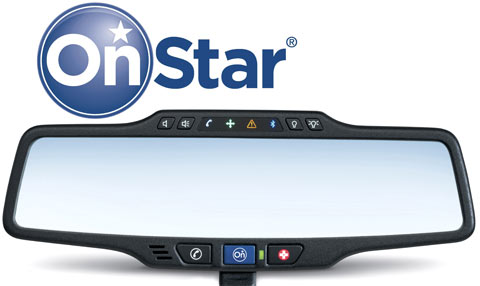OnStar Will Track You Even Without a Plan
OnStar has started the long process of notifying customers that it may continue to collect and use information about the vehicle even if the customer terminates his or her subscription. This might come as a shock to many of you as if you aren’t paying for the service or never have you wouldn’t expect OnStar to still track you. In a privacy notice that will take effect this December, OnStar said that it would collect data as long as a data connection was active, including such details as the location and speed of the vehicle, as well as such fine-grained details as the odometer readings and tire pressure. The privacy statement lists it as being effective as of Dec. 2011, although the statement also notes that the changes were made to the Jan. 2011 privacy statement. So, if you don’t pay for OnStar and don’t want big brother up in the sky to track you what do you do? Can you just unplug the wiring in the rear view mirror or something? OnStar has not started selling data that it collects according to the company, but we all know that is what is going to happen down the road.

We have added more detailed information about the information we collect about you and about your Vehicle, including how we collect your information, what we do with it and how we share it. For example, unless the Data Connection in your Vehicle is deactivated, information about your Vehicle may continue to be collected even if you do not have a Plan. Unless the Data Connection to your Vehicle is deactivated, data about your Vehicle will continue to be collected even if you do not have a Plan. It is important that you convey this to other drivers, occupants, or subsequent owners of your Vehicle. You may deactivate the Data Connection to your Vehicle at any time by contacting an OnStar Advisor. The information we may collect from your Vehicle includes:
- information about your Vehicles operation, including such things as diagnostic trouble codes, oil life remaining, tire pressure, fuel economy and odometer readings;
- information about crashes involving your Vehicle, including the direction from which your Vehicle was hit, which air bags have deployed, and safety belt usage;
- information about your use of the Vehicle and its features, such as whether you have paired a mobile device with your Vehicle;
- information about when your Vehicles ignition is turned on or off and when your fuel is refilled; and
- the location and the approximate speed of your Vehicle based on the Global Positioning System (GPS) satellite network.

Comments are closed.